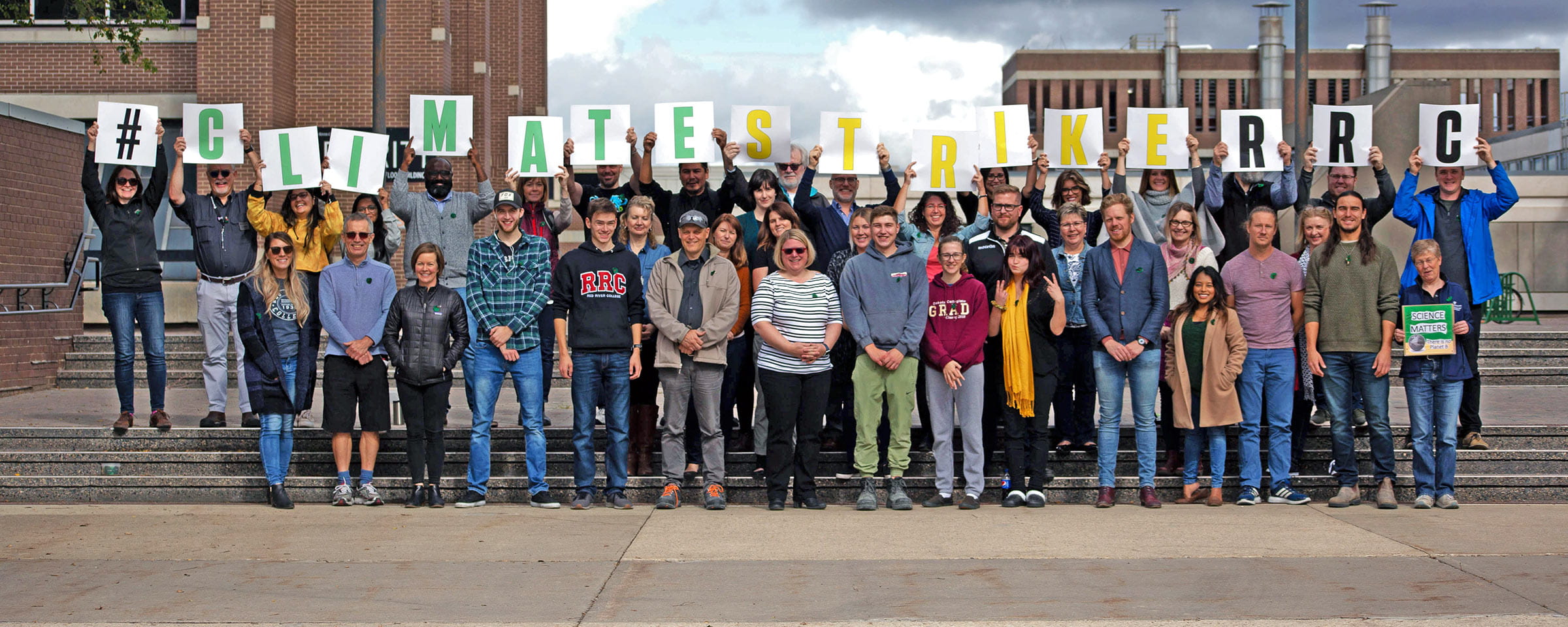


Of the College’s electrical costs, an estimated
amounting to more than half a million dollars in electrical costs annually. Reducing energy costs from plug load and lighting through behaviour changing interventions advances sustainable growth.
As building technologies evolve, newer buildings are built with more efficient infrastructure (heating and cooling systems, lighting, etc.) making plug load a larger and larger piece of overall energy consumption. In fact, it is estimated that plug load will account for up to 40% of electricity use at the new Innovation Centre. Having programs and supports in place keeps our new buildings as efficient as possible.
In the College’s old buildings, there is currently no way to measure the amount of energy used by plug loads or lighting*. To determine where the largest impacts can be made through user interventions, the Resource Reduction Specialist looks at baseline data from a college-wide inventory of the plug-load devices used on campus.
*While lighting infrastructure is not included in the scope of the Resource Reduction Specialist position, user behaviour accounts for some of the costs associated with lighting.
Based on the plug load inventory and consultations with key stakeholders, we created the following initiatives to reduce the College’s plug load:
Seasonal Shutdowns: When faculty offices close over the summer and winter holidays, appliances can get a mini-vacation, too! Seasonal Shutdowns are annual events where staff win prizes for completing a checklist that includes unplugging all electronics and shutting off lights for the holidays.
Connecting with Student Residences: To engage students in student housing to reduce their own energy and lighting use, we develop awareness-raising guides and communication materials to support students in reducing their footprint. Some positive changes have already been made, such as all washing machine defaults being switched to cold wash from warm.
Policies and Guidelines: Clear direction and accessible information make decision making easier when it comes to energy-efficient practices or purchases. Policies and guidelines are under development to outline what the College is committing to maximize energy efficiency and the choices staff can make to support these goals.
Engagement and Communication: Energy reduction campaigns and events such as Earth Hour keep resource reduction visible and relevant on campus. This is paired with consistent and approachable communication through our microsite, social media, and All-Staff news. Materials such as posters and updated stickers at light switches encourage energy-saving behaviour.
Student projects are another great way to get students engaged. We currently have students making a difference through two projects:
Green Office Certification Program: Our office launched a pilot Green Office and Lab certification program in 2018 with 10 offices and three labs participating. The program measures individual and collective sustainable actions in a tiered ranking system (i.e. Bronze, Silver, Gold) based on earned points. Credits span several categories such as energy, paper, transportation, waste, and social sustainability. The program will be fully launched in winter, 2019.
A Plug Load Reduction Advisory Group (PLRAG) of key stakeholders from across the College provide advice and expertise to guide these initiatives. The group strives for a minimum of one representative from each of these areas:
Additional key stakeholders may be invited to sit on the Advisory Group as the work progresses. Consultations have and continue to occur with the College community to get feedback on this project.
Reducing plug load is something we can all do to create a more sustainable campus. Here’s some ways you can help:
RRC Polytech campuses are located on the lands of the Anishinaabeg, Ininiwak, Anishininwak, Dakota Oyate, and Denésuline, and the National Homeland of the Red River Métis.
We recognize and honour Treaty 3 Territory Shoal Lake 40 First Nation, the source of Winnipeg’s clean drinking water. In addition, we acknowledge Treaty Territories which provide us with access to electricity we use in both our personal and professional lives.